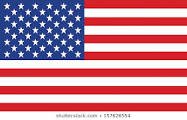America is steeped in violence. And the roots of that violence go deep








America is steeped in violence. And the roots of that violence go deep
After an 18-year-old gunman shot and killed 19 schoolchildren and two teachers at an elementary school in Uvalde, Texas, President Biden took to the airwaves to address the nation in a speech full of sorrow and anger. “I just got off my trip from Asia, meeting with Asian leaders, and I learned of this [massacre] while I was on the aircraft,” he said. “And what struck me on that 17-hour flight – what struck me was these kinds of mass shootings rarely happen anywhere else in the world.”
Provided by The Guardian Photograph: Jae C Hong/AP
He’s right, of course. In 2018, CNN investigated school shootings worldwide between 2009 and 2018. The US, as it turns out, has “57 times as many shootings as the other six G7 countries combined”. What an appalling statistic.
Any sane person would hear this number and ask why. And that’s precisely the question Biden addressed next. “They have domestic disputes in other countries. They have people who are lost. But these kinds of mass shootings never happen with the kind of frequency that they happen in America. Why?” he asked.
This may be the most important question confronting the country today, but the answer that most people, at least most Democrats, reach for – that guns are too easy to access – isn’t, well, it isn’t good enough. While this response is not wrong, and the country certainly and desperately needs a sane policy on guns, such an answer avoids grappling with the fundamentally violent nature of American society, something that guns may exacerbate but didn’t produce.
Do most Americans realize how steeped in violence this country is? So far this year, there have already been 27 school shootings nationwide and we have only just reached June. Move beyond the perimeter of a school and you’ll discover that there have already been 213 mass shootings in 2022. To put that in perspective, that’s about three mass shootings for every two days.
But American violence isn’t limited to mass murderers. As we remember the killing of George Floyd in Minneapolis two years ago this week, we should also reflect on the fact that police shootings killed 1,055 people in 2021, as reported by the Washington Post. This was a record number since the Post began its tally in 2015. The United States is a large country, but American police kill civilians at much higher rates than any wealthy nation, more than three times the rate of Canadian and Australian police and almost 30 times the rate of German police.
A country that develops and relies on the overwhelming size and severity of its penal system is also a country beholden to its own violence. And the United States continues to incarcerate far more people than any other country. About 664 out of every 100,000 people are in prison. Compare that with 329 people out of 100,000 in prison in the Russian Federation or the 93 people per 100,000 in prison in France. About one-third of all incarcerated women worldwide are found in US prisons. A 2018 study found that El Salvador, where women are routinely and unconscionably imprisoned for having abortions and miscarriages, has the same incarceration rates for women as Wisconsin.
Of course, we need a sensible policy on guns, but will that stop us from venerating guns as love objects? How many of us have read the Creed of a United States Marine? “My rifle is my best friend. It is my life. I must master it as I must master my life,” it states, along with “my rifle, without me, is useless. Without my rifle, I am useless.”
Maybe this makes sense as part of military indoctrination but, let’s face it, culturally, we are all expected to buy into this idea, and with interest. We celebrate snipers, turn them into national heroes, and make movies about their accomplishments, even when a lot of what we’re told probably isn’t true. Our parents and grandparents watched endless cop shows, Dirty Harry movies and John Wayne westerns, believing that guns are as much a part of the American wardrobe as the Stetson hat.
While there are times when we talk about forging peace in this country, the truth of the matter is we make a lot of war: military conflicts make up perhaps 93% of our history. Roughly a quarter of the country has lived only in a time of war. And within that history, American weapons are an industry, a mythology and identity simultaneously. Why do we call armed, military helicopters “Apache" helicopters” for goodness sake?
When will we face the fact that this is a country baked in its own violence, much of it racist in intent and effect? As Carol Anderson has shown, guns and violence were integral to controlling, patrolling and terrorizing the enslaved Black people of this country. Likewise, there would be no broken treaties, forced removals and land theft of Indigenous territory without guns, and we should see how our laws are based on that fact. “The violent appropriation of Native land by white settlers was seen as an individual right in the Second Amendment of the US Constitution,” Roxane Dunbar-Ortiz writes, “second only to freedom of speech.”
Every day, America’s obsessions with guns and violence terrifies its citizens, but it also reflects its own genocidal and racist past. In fact, American violence has its roots in its own settler-colonial origins. When you moved to a colony as a settler, Hannah Arendt observed long ago, you freed yourself from the morality of your home country and acted any way you wished, as long as you had your carbine by your side. Colonizers were “functionaries of violence”, Arendt explains, able to define themselves both by their opposition to their home country and by their brutal subjugation of the natives around them. This particular kind of colonial arrogance sounds familiar. In American mythology, we call it rugged individualism.
Many Republicans do indeed take a lot of money from the NRA and the rest of the gun lobby, and they should be publicly shamed for the ways they have enabled these killers to get their weapons. But let’s also admit that it’s easier and more politically expedient for Democrats to blame Republicans on this issue rather than reckon with our historic national dependence on violence to define us a people. Guns may be the tools, but they are not the core of the violence. If we were to be honest with ourselves, we would see that this dark heart of violence is not simply a partisan issue but is a much longer and more intimate part of our own national tragedy.
-
Moustafa Bayoumi is the author of the award-winning books How Does It Feel To Be a Problem?: Being Young and Arab in America and This Muslim American Life: Dispatches from the War on Terror. He is Professor of English at Brooklyn College, City University of New York
Reference: The Guardian: Moustafa Bayoumi
Articles-Popular
- Main
- Contact Us
- Planetary Existences-2
- Planetary Existences
- TWO REVELATIONS-2
- Jeffery Epstein - The Saga - 9
- Jeffery Epstein - The Saga - 8
- Jeffery Epstein - The Saga - 10
- The Two Revelations
- The Fourth Way - Study of Oneself - P.D.Ouspensky
- Impeachment Investigators Subpoena White House - Ukraine
- Universality of Initiation
- The Path Of Initiation
- The Participants In The Mysteries-2
- Initiation and the Devas
- The Fourth Way - Wrong Functions - P.D Ouspensky
- The Final Initiation
- Statues are a mark of honour. Like Edward Colston, Cecil Rhodes and Oliver Cromwell have to go
- Discipleship - Group Relations - 2
- The Probationary Path - 2
- The Participants In The Mysteries
- Discipleship - Group Relationships
- Discipleship
- The Succeeding Two Initiations
- Jeffery Epstein - The Saga - 7
- Jeffery Epstein - The Saga - 6
Articles - Latest
- They Lied to Us! The Truth They Hid About Hitler’s Death — Gerard Williams
- Ramaposa Dragged Out of Parliament
- Madagascar Goverment Collapse
- The Reality of Digital Id
- Welcome To The End Of Western Dominance
- Why is the Sahel turning its back on France?
- Sarkozy gets 5 years in prison in Gadhafi case
- The EU in 2025: A union at the crossroads of chaos
- Deep distrust of EU leaves Italy's Meloni in a corner over bailout fund
- Regime crisis in France: Bayrou falls, now Macron must go!
- Idi Amin president of Uganda
- Anger at Starmer's 'surrender deal' that hands Spain control over Gibraltar border
- Iran doubles down as US signals Israel could strike during nuclear talks
- What could have caused Air India plane to crash in 30 seconds?
- WW3 fears explode as Britain now Russia's 'enemy number 1' - even ahead of Ukraine






